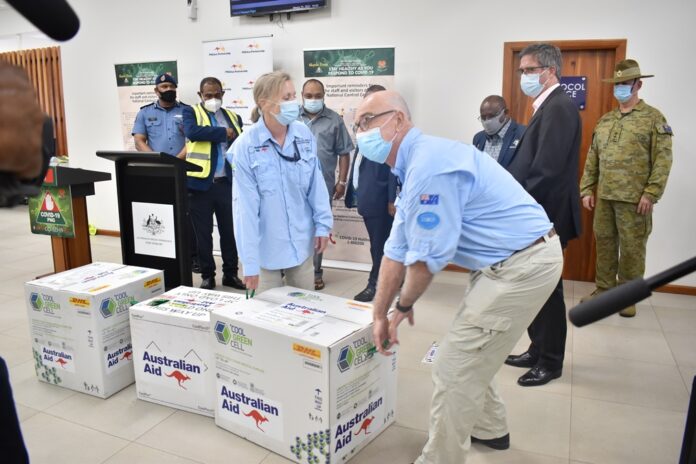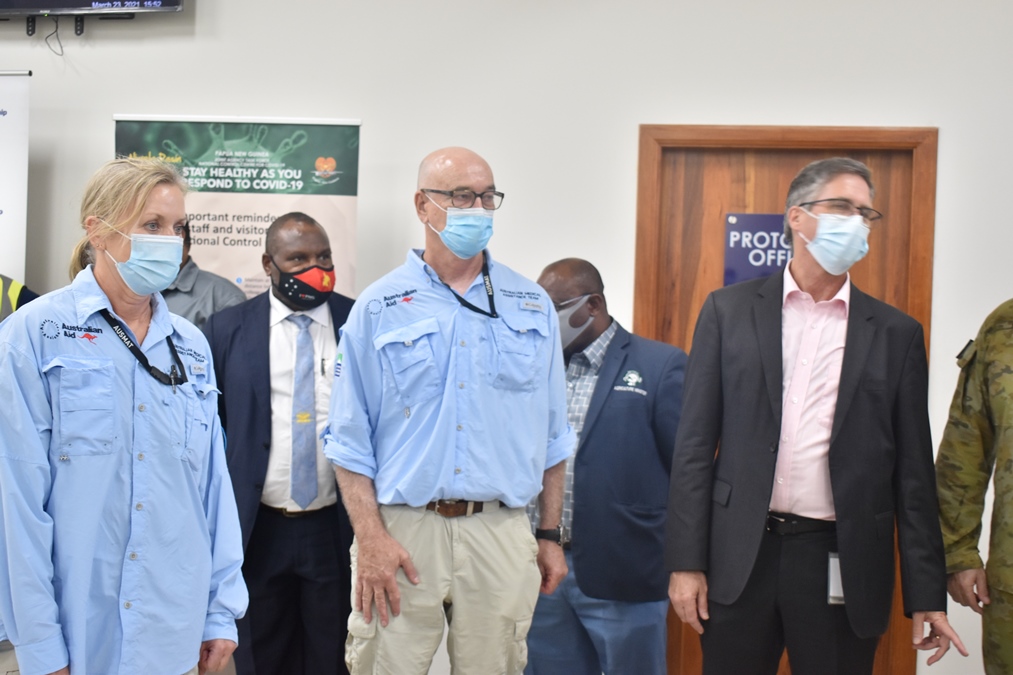
By CHRISTOPHER YANDAWAI
DESPITE intense opposition from members of the public on COVID-19 vaccine rollout program in Papua New Guinea, the Australian government has delivered a first lot of 8,000 AstraZeneca vaccines for COVID-19 to PNG.
The 8,000 AstraZeneca vaccines arrived in three boxes from Royal Australian Air Force (RAAF) flight yesterday afternoon at APEC Terminal of Jacksons Airport.
Prime Minister James Marape and authorities from the National Department of Health including members of the National Pandemic Control Centre led by Pandemic Controller David Manning were there to receive the vaccines.

The arrival of the vaccines is at the request of the PNG government in response to the ongoing spike in confirmed COVID-19 cases in the country.
Prime Minister James Marape in his address to the media upon the arrival of the AstraZeneca vaccines, thanked the Australian government for the timely assistance to help respond to the COVID-19 crisis in the country.
The Prime Minister said the first lot of vaccines will be geared towards frontline health workers in the country who are prone to contract the virus.
PM Marape also clarified that COVID-19 vaccine rollout in PNG is not a compulsory as assumed by many but can be taken voluntarily.
He said COVID-19 has killed and is still killing thousands of people globally and in PNG, the government is doing its best to contain the spread of the virus.
“If you think this virus is dangerous to your health, it’s proper you take the vaccines voluntarily to help protect not only yourself but others as well,” PM Marape said.
Australian High Commissioner to PNG, Jon Philip said Australia – PNG partnership has always being there.
“We have an existing strong partnership with Papua New Guinea and what we can best do to help. We are able to give 8,000 vaccines for frontline health workers,” Mr Philip said.
According to World Health Organization, vaccination is a simple, safe, and effective way of protecting people against harmful diseases, before they come into contact with them. WHO said it uses your body’s natural defenses to build resistance to specific infections and makes your immune system stronger.
“Vaccines train your immune system to create antibodies, just as it does when it’s exposed to a disease. However, because vaccines contain only killed or weakened forms of germs like viruses or bacteria, they do not cause the disease or put you at risk of its complications.
“Most vaccines are given by an injection, but some are given orally (by mouth) or sprayed into the nose.
“When we get vaccinated, we aren’t just protecting ourselves, but also those around us. Some people, like those who are seriously ill, are advised not to get certain vaccines – so they depend on the rest of us to get vaccinated and help reduce the spread of disease.”
